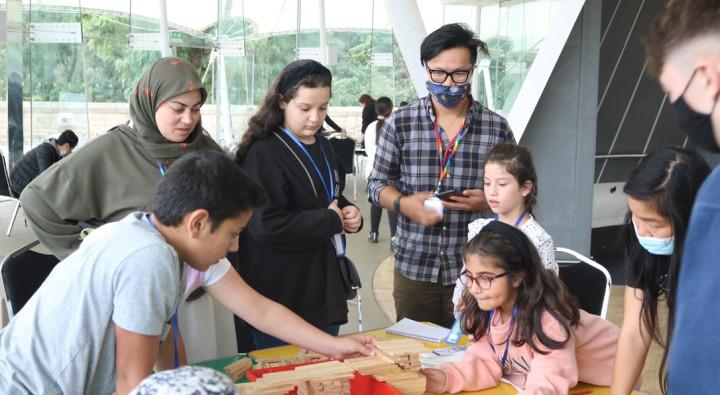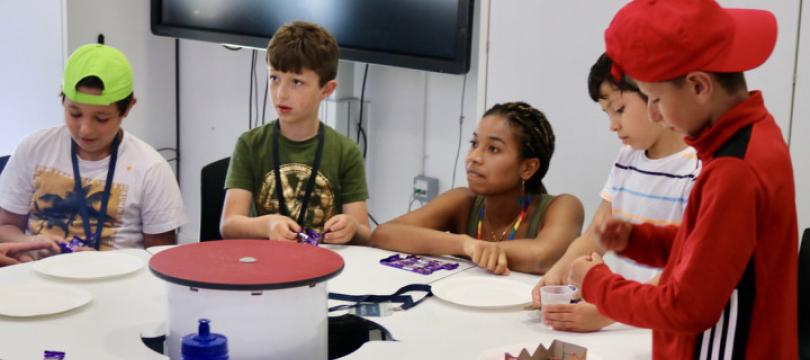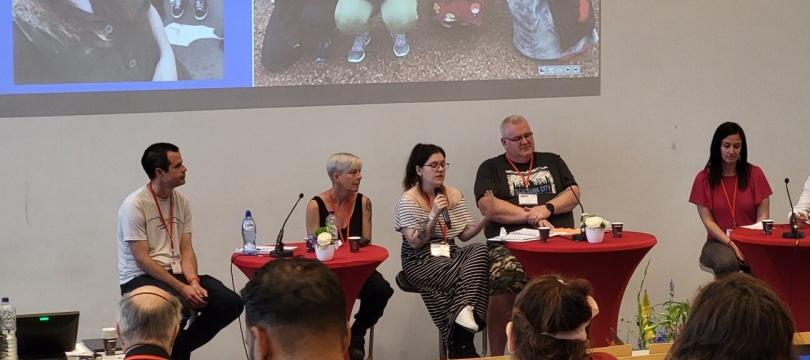How do we move away from foregrounding ourselves? The problem with “Co-Production”
In the second of a 3-part blog series, Lewis Hou, Founder and Director of the Science Ceilidh, explores the concept of ‘co-production’. He discusses the dominant power structures that can often hinder truly co-produced research and engagement.

One of the challenges of youth-centred and equity-focused work is the competing motivations of different partners across the system. Often, young people’s (and the practitioners who support them) needs are not prioritsed.
Even when the rhetoric behind engagement is focused on social outcomes (e.g. developing trust), if what is being evaluated is knowledge literacy and reach, then the researcher is pushed towards simply teaching their expertise and reaching certain targets. This prioritises institutional agendas, and can stifle youth-centred and equitable engagement.
Similarly, the narrative of “co-production” used in this space can still foreground the institution and not the young people themselves. Even as a firm advocate for this work, I always have a slight worry when I hear “We’re going to co-produce this with…”
For me, this well-intentioned framing (also see: “We are going to empower…”) often subtly re-establishes the traditional power dynamics in engagement: it is the institution that has set the terms of engagement and agenda, and who has the power to decide they are going to co-produce, plus the boundaries and terms in which they do this.
Ultimately, co-production is an equity issue, it’s based on appropriateness and need, rather than a one-sided assumption that going straight to the top of the “ladder of participation” is better or even appropriate. Co-production, done properly, takes time, capacity, and trust. For groups working with the most marginalised young people, these are in short supply - now more than ever. In many cases, many actors, be it researchers or institutions, simply haven’t earned that trust yet.
For me, it’s about being intentional and realistic about the level of co-production and what this looks like. At the beginning of a relationship, allthe group might want and/or have capacity for is to be part of some thoughtfully delivered activities. However, far from condoning a one-sided “deficit model”, the main priority is that young people and organisations have informed consent in the process and have the right to decide what level of co-production they want and need at the time. This initial delivery can support the baseline understanding of what might be possible, with the recognition that this canevolve and develop over time with building trust.
Importantly, this isn’t a critique of good faith individuals trying to co-produce but rather that of the systems around this work which claim to prioritise youth-centred work,but do not provide the time or space needed do it meaningfully, nor consider which researchers (or other actors) are even best placed to support. There are few opportunities to support this exploratory stage, which are more driven by process and allowing for emergence. The Wonder Match scheme and the Highlands & Islands Climate Change Community Grants are specific examples of this, and more of these exploratory grants would enable better quality co-production down the line.
How do we build more flexible power structures and develop a wider ecosystem that centres groups?
One solution is recognising the role of, and supporting, more community-based intermediaries (including youth organisations themselves). These intermediaries can foreground community organisations and participants, be more agile compared to bigger institutions, and be more what I call “agnostic” in that they're able to meet a wider range of needs without making prior assumptions.
One example is our work with Multicultural Family Base in Edinburgh, who support young people from diverse migration backgrounds. This work developed over years. To begin with, the group needed support primarily with general volunteering, from facilitating cross-cultural music for Eid celebrations to providing activities for the young people.
It was only many years later, once we had developed our relationships, that the groups asked us what we could do to support employability and youth work. For example, their men's group were keen to connect with local engineers to develop their technical English and share their skills and employability . This then became the basis for approaching local Universities and organisations and facilitating partnerships with Royal Academy of Engineering to develop the ‘New Scots Connect’ project.
We were agnostic as we could provide a wider set of options based on community need. This is perhaps in contrast to research institutions who often need to involve their research as part of the answer in some way to justify the time spent. At worst, this is responding to a question the community hasn’t even posed. At best, it involves researchers and public engagement managers pushing for more community-led practice, despite the constraints, and usually in ways that are not recognised or rewarded by their institutions.
We need to nurture an ecosystem where more community intermediaries have the capacity and confidence to connect with researchers based on needs, and vice versa. Through this, power and different skills, needs and motivations can be balanced and “translated” between partners, enabling more meaningful co-production.
Further resources:

